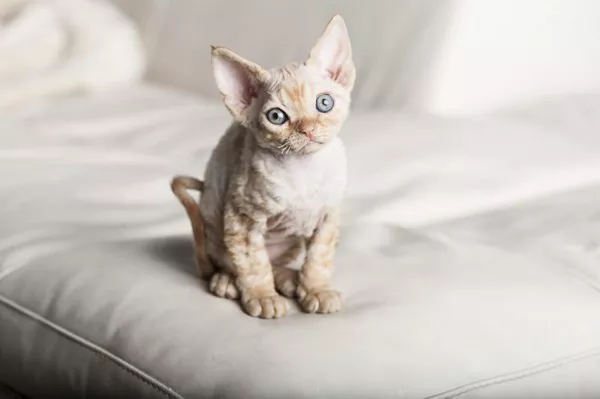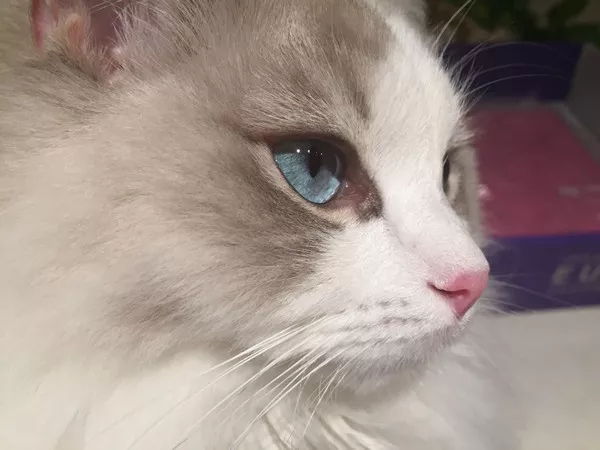Aggression in cats is a complex behavior that can be influenced by various factors, including breed-specific traits. This essay aims to delve into the potential reasons behind aggression in Devon Rex cats, an affectionate and playful breed known for its unique appearance and lively personality. By exploring the genetic aspects, socialization, environmental factors, and health considerations associated with aggression in Devon Rex cats, we can gain valuable insights into this behavior and provide guidance to cat owners on managing and mitigating aggression effectively.
1. Introduction
Cats are fascinating creatures with distinct personalities shaped by both genetic and environmental factors. The Devon Rex breed, renowned for its curly coat and mischievous disposition, may occasionally exhibit aggressive behavior. This essay seeks to explore the various factors that can contribute to aggression in Devon Rex cats and offer potential solutions to assist owners in managing this behavior effectively.
2. Genetic Factors
Genetics plays a fundamental role in determining a cat’s temperament and predisposition to certain behaviors. While there is limited scientific research specifically focused on the genetics of aggression in Devon Rex cats, it is crucial to consider the breed’s origins. The Devon Rex breed originated from a spontaneous mutation affecting the hair structure, which may also impact other physiological and behavioral traits. It is plausible that certain genetic variations within the breed might contribute to aggression tendencies, although further research is needed to establish any direct link.
3. Early Socialization
Proper socialization during a kitten‘s early development stages is crucial in shaping their behavior later in life. Devon Rex cats should be exposed to a variety of positive experiences, including interactions with humans and other animals, to ensure they develop appropriate social skills. Insufficient or improper socialization may lead to fear, anxiety, and defensive aggression in response to perceived threats. Responsible breeders and owners must prioritize early socialization to minimize the risk of aggression issues.
4. Environmental Factors
The environment in which a cat lives can significantly impact its behavior. Devon Rex cats thrive in environments that provide mental stimulation, opportunities for play, and a sense of security. Inadequate environmental enrichment, such as a lack of interactive toys, scratching posts, or hiding places, can result in boredom and frustration, leading to aggressive behavior as an outlet for pent-up energy. Creating a stimulating and enriched environment can go a long way in preventing aggression and promoting overall well-being.
5. Health Considerations
Health issues can contribute to changes in behavior, including aggression. It is essential for owners of Devon Rex cats to ensure their pets receive regular veterinary care to address any underlying medical conditions that may be causing discomfort or pain. Conditions such as dental problems, hormonal imbalances, or chronic pain can manifest as aggression in cats. A thorough examination by a veterinarian can help identify and address potential health-related causes of aggression.
6. Behavioral Modification Techniques
When dealing with aggression in Devon Rex cats, employing positive reinforcement techniques is highly recommended. Punishment-based methods are ineffective and may exacerbate aggressive behavior. Instead, reward-based training, using treats or praise to reinforce desired behaviors, can be utilized to redirect and teach alternative responses. Additionally, seeking professional advice from a certified animal behaviorist or veterinarian experienced in feline behavior can provide valuable guidance in implementing appropriate behavioral modification strategies.
7. Managing Aggression
In cases where aggression persists despite efforts in socialization and behavior modification, management strategies become paramount. Setting up clear boundaries, providing safe spaces, and implementing gradual reintroductions between cats (if applicable) can help mitigate aggressive incidents. It may also be necessary to avoid triggering situations and ensure the safety of both the cat and other household members.
8. Conclusion
Aggression in Devon Rex cats is a multifactorial issue influenced by genetic predispositions, early socialization experiences, environmental factors, and underlying health conditions. Understanding the potential causes of aggression and implementing appropriate strategies can help cat owners manage and address this behavior effectively. By prioritizing early socialization, creating a stimulating environment, addressing any health concerns, and employing positive reinforcement techniques, owners can promote a harmonious relationship with their Devon Rex companions while ensuring their overall well-being.


























